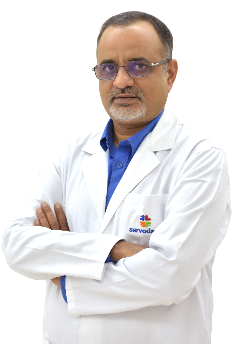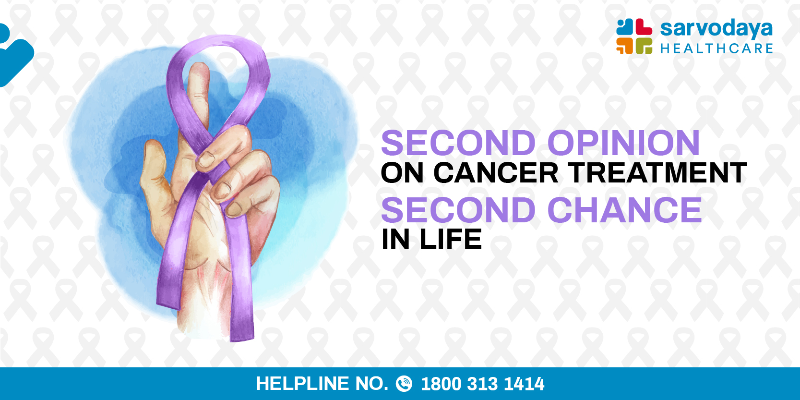Headaches are a common ailment that most people experience at some point in their lives. The location and severity of headaches can differ significantly, as can their frequency. It is worth noting that the brain tissue itself lacks pain receptors, so it is incapable of experiencing physical pain.
However, headaches may originate from other areas of the head, such as a cluster of nerves that spread throughout the scalp, specific nerves located in the face, mouth, and throat, head, neck, and shoulder muscles, blood vessels situated on the surface and base of the brain.
Some people may be concerned that frequent headaches could be a sign of a more serious condition, such as a brain tumour. In this article, we'll explore whether frequent headaches are an indication of a brain tumour.
What is a Brain Tumour?
A brain tumour is an abnormal growth of cells within the brain or surrounding tissue. They can be either benign or malignant, with malignant tumours being cancerous and more likely to spread to other parts of the body.
Some Facts About Brain Tumour:
Brain tumours typically occur most frequently among individuals between the ages of 40 and 60. Primary brain tumours, which originate within the brain, are not as prevalent as metastatic brain tumours, which spread from other regions of the body. Not all brain tumours cause headaches, as the brain does not possess pain receptors. Only when a tumour becomes large enough to exert pressure on nerves or blood vessels, it causes a headache.
Therefore, headaches can be a symptom of a brain tumour, but they are not always a definitive indication of one. Headaches caused by brain tumours are often different from regular headaches in their characteristics and severity. They may be accompanied by other symptoms such as seizures, changes in vision, and cognitive changes.
Causes of Brain Tumours
Several factors have been associated with the development of brain tumours. These include:
- Genetics: Inherited genetic mutations can increase the risk of developing brain tumours. People with genetic disorders such as neurofibromatosis and Li-Fraumeni syndrome have a higher risk of developing brain tumours.
- Radiation exposure: Exposure to high levels of ionizing radiation, such as that used in radiation therapy for cancer treatment, can increase the risk of developing brain tumours.
- Immune system disorders: Certain immune system disorders can increase the risk of developing brain tumours, such as HIV/AIDS and organ transplant recipients who take immunosuppressant medications.
- Environmental factors: Exposure to certain chemicals, such as pesticides, have been linked to an increased risk of brain tumours.
- Previous head injury: People who have experienced a head injury, particularly one that causes bleeding in the brain, have a higher risk of developing a brain tumour.
Symptoms of Brain Tumours
The symptoms of a brain tumour can vary depending on the location and size of the tumour. Some common symptoms include:
- Frequent headaches, especially if they are severe or do not respond to treatment
- Seizures or convulsions
- Nausea and vomiting
- Difficulty speaking or understanding language
- Weakness or numbness in the arms or legs
- Changes in vision or hearing
- Difficulty with balance or coordination
- Changes in mood or personality
Red Flags to Look Out For If You Suffer From Severe Headache
While most headaches are not a cause for concern, some red flags may indicate a more serious condition and require urgent medical attention.
- Headache that is accompanied by a fever, stiff neck, confusion, seizures, weakness, or numbness in the limbs.
- Headache that is triggered by coughing, sneezing, or bending over.
- Headache that is accompanied by visual disturbances, such as double vision, blurred vision, or loss of vision.
- Headache that accompanies speech difficulties, confusion, or loss of consciousness.
- Headache that gets worse over time or is persistent and does not respond to over-the-counter pain medication.
- Headache that is followed by vomiting, especially if the vomiting is severe or is accompanied by neck stiffness.
Diagnostic Tests for Brain Tumours: Understanding the Options
If you are experiencing frequent headaches or other symptoms that may be indicative of a brain tumour, consult with our team of neurologists at Sarvodaya Hospital, Sec-8, Faridabad. They will perform a thorough physical exam and may order additional tests to help diagnose the condition accurately, to define the best treatment method forward.
Some common tests used to diagnose brain tumours include:
- MRI or CT scans to create images of the brain and identify any abnormal growths.
- Biopsy to remove a small sample of tissue for examination under a microscope.
- PET scans to determine if the tumour is cancerous and if it has spread to other parts of the body.
- Electroencephalography (EEG) measures the electrical activity in the brain and detects any abnormalities.
Treatment Options for Brain Tumours
The treatment for a brain tumour will depend on several factors, including the size, location, and type of tumour, as well as the patient's overall health. Some common treatment options include:
- Surgery to remove as much of the tumour as possible
- Radiation therapy kills cancer cells and shrinks the tumour
- Chemotherapy to destroy cancer cells
- Steroids to reduce swelling and inflammation around the tumour
- In some cases, a combination of these treatments may be recommended. It is important to work closely with your doctor to develop a treatment plan that is tailored to your specific needs. At Sarvodaya Hospital, Sec-8, we have some of the best neurologists & neurosurgeons in Faridabad, to ensure a customised & appropriate plan is developed for the patient, so that they have the best chance against their brain tumour.
Tips for Managing and Preventing Headaches
If you suffer from frequent headaches, there are several things you can do to manage and prevent them. Here are some tips:
- Stay hydrated
- Get enough sleep
- Exercise regularly
- Limit caffeine and alcohol
- Maintain a healthy diet
- Manage stress: Try relaxation techniques such as deep breathing, meditation, or yoga
- Manage your environment: Bright lights, loud noises, and strong odors can trigger headaches, so try to manage your environment to avoid these triggers. Seek medical advice.
By adopting these lifestyle changes, you can effectively manage and prevent headaches, which can greatly improve your quality of life.
The final word
Brain tumour surgery is a complex and challenging procedure that requires a team of highly skilled medical professionals. While it carries risks and potential complications, it can also provide significant benefits for patients in terms of improved quality of life and survival rates.
If you or your loved one is detected with a brain tumour and you are looking for Brain tumour surgery in Faridabad, then you may consult a Brain Tumour Surgeon at the Centre for Brain & Spine at Sarvodaya Hospital, for Sector 8, Faridabad. Here we are equipped with one of the most advanced cutting-edge ZEISS TIVATO Surgical Microscopes, which provides clear & crisp images backed by high-definition optics and advanced lighting systems, making it easier for surgeons to identify and remove tumours without damaging surrounding tissues. and enhance patient outcomes.
The Centre for Brain & Spine at Sarvodaya Hospital offers comprehensive care for stroke, spinal cord injuries, epilepsy, brain tumours and other neurological conditions. Additionally, the department has an impressive track record, with over 200 successful brain tumour surgeries performed.
The team of dedicated specialists and support staff ensure patient comfort and satisfaction, making Sarvodaya Hospital a trusted destination for neurological care.
To know more, consult with our experts by booking an appointment today: 1800 313 1414
FAQs
Q: If I have frequent headaches, does that mean I have a brain tumour?
A: No, frequent headaches can be caused by a variety of factors such as tension headaches, migraines, sinusitis, or stress. While brain tumours can cause headaches, they are not the most common cause.
Q: What are some other symptoms of a brain tumour besides headaches?
A: Other symptoms of a brain tumour may include seizures, changes in vision or hearing, difficulty with balance, weakness or numbness in the arms or legs, and changes in behaviour or personality.
Q: How can I determine if my headaches are caused by a brain tumour?
A: If you are experiencing frequent headaches or any of the other symptoms associated with a brain tumour, it is important to see a doctor. They will be able to perform a physical examination and may order imaging tests such as a CT scan or MRI to determine if a brain tumour is present.
Q: Are there any risk factors for developing a brain tumour?
A: Some risk factors for brain tumours include a family history of brain tumours, exposure to radiation, and certain genetic conditions.
Q: Can brain tumours be treated?
A: Yes, brain tumours can be treated with a variety of approaches including surgery, radiation therapy, and chemotherapy. The treatment plan will depend on the type and location of the tumour, as well as the individual's overall health and other factors.
Q: Are all brain tumours cancerous?
A: No, not all brain tumours are cancerous. Brain tumours can be either malignant (cancerous) or benign (non-cancerous).
Q: Can lifestyle changes help prevent brain tumours?
A: There is no guaranteed way to prevent brain tumours, but living a healthy lifestyle and avoiding radiation exposure may help reduce the risk of developing one.










